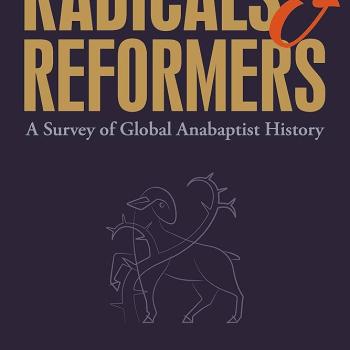In 1842, in response to a request from the editor of the Chicago Democrat, Joseph Smith wrote a list of some of Mormonism's central beliefs, the "Articles of Faith." The fourth of them says "We believe that the first principles and ordinances of the Gospel are: first, Faith in the Lord Jesus Christ; second Repentance; third, Baptism by immersion for the remission of sins; fourth, Laying on of Hands for the gift of the Holy Ghost."
The question is, What do we mean by that first principle, faith? It is often treated as some kind of mysterious power, making it difficult to imagine how I could come by it if I didn't already have it.
The philosopher Paul Ricoeur's hundredth birthday would have been on Wednesday, the 27th of February. Ricoeur was a major figure in European philosophy and is also recognized in the U.S. as someone who could span the sometimes cavernous gulf between much European philosophy and Anglo-American thought.
Ricoeur wrote about many themes, particularly focusing on the issue of understanding. His works range from the social sciences (Hermeneutics and the Human Sciences), to the nature of language (The Rule of Metaphor and the three-volume work Time and Narrative), to the question of human identity (Oneself as Another). As a religious person he also wrote on religious themes, from the nature of evil (The Symbolism of Evil), to biblical exegesis (Thinking Biblically).
In "Le soi dans le miroir des Ecritures" ("The Self in the Mirror of the Scriptures"), Ricoeur gives three answers to the question of what faith is:
- A "feeling of absolute dependence" in relation to a creation that precedes me
- The "ultimate concern" at the horizon of all my preoccupations
- An "unconditional trust" that hopes in spite of everything
The first two of these are, of course, legitimate ways in which the word faith has come to be used. But the third most closely corresponds to the way in which faith is spoken of in scripture.
The Hebrew Bible shows us that for those who wrote it faith was a way of being rather than a belief content. One way to notice that is to see how seldom—if at all—the Hebrew Bible refers to faith. Instead, it speaks of faithfulness. A person of faith is one who is faithful, and to be faithful is to be firmly established in relation to others and God, to have fidelity, to be trusting and, especially, to be trustworthy.
The New Testament understands faith in much the same way. The Greek word pistis refers to faith as an act rather than as a content. The Book of Mormon often speaks of exercising faith, also taking it up as a way of acting and being. (See, for example, 1 Nephi 7:12.) Faith is something we do more than something we believe. It is an act of trust.
But faith isn't just any trust. It is the trust we exhibit when we trust in God and respond to the call he makes through scripture and divine inspiration. For Latter-day Saints that call comes not only through scripture and through personal inspiration, but also through the continuing revelation given to those who lead the LDS Church. God's call to us comes through all three, and the three cannot be tweezed apart.
Without that multi-threaded call from God, faith is meaningless. Without it, I can feel neither absolute dependence in what comes before me nor ultimate concern, and there is nothing toward which my faith points, nothing to which it responds. But with the call from God, faith of all three kinds becomes possible.
A person acting faithfully in response to scripture and continuing revelation is informed (in the strongest sense of that word: in-formed, given form) by them. For such a person, scripture and revelation are prior to, fundamental to, meaningful life. In them one finds the framework that gives the world sense and, therefore, that gives the self meaning.
If we have faith, then, we trust in what is prior to us, whether that come to us through the inspired and canonized text, the pronouncements of someone authorized by God, or the whisperings of the Spirit. Our faith is measured by the faithfulness we exhibit in response to the world granted us by God's call.
:::page break:::12/2/2022 9:09:20 PM





